Leea indica (Burm.f.) Merr.
| Etymology | Genus | After James Lee, 18th century English nurseryman |
|---|---|---|
| Species | From or first named in India | |
| Family | Vitaceae | |
| Synonyms | Staphylea indica Burm.f. | |
| Common Names | Bandicoot Berry, Memali | |
| Status | Native: Common | |
| Form | Shrub | |
| Native Distribution | India subcontinent, China, Indochina, Malesia, New Guinea, North Australia, Pacific Islands | |
Diagnostics:
A very common shrub and most common among the Leea species in Singapore, Leea indica can be found in undergrowth and sunny areas in a variety of habitats, and is also widely cultivated because of its attractiveness to nectar-collecting insects for its flowers and frugivores for the berries. The compound leaves are serrated, and the petiole is sometimes reddish at the ends. The flowers are greenish white, while the fruits ripen to purple-black.
Interesting Facts:
Research in 2013 found that the leaf extracts of Leea indica contain antioxidative, antimicrobial and cytotoxic effects (Rahman et al., 2013). A study from NUS found that among other plants traditionally used for cancer treatment, this one is the most promising, as it has strong or moderately strong effects against cervical, colon, liver, ovarian, and uterine cancers (Rei, 2019). In a more recent study, researchers found that the phytoconstituent methyl gallate in it enhances the sensitivity of ovarian cancer cells to killing by NK (Natural Killer) cells (Neo et al., 2023).
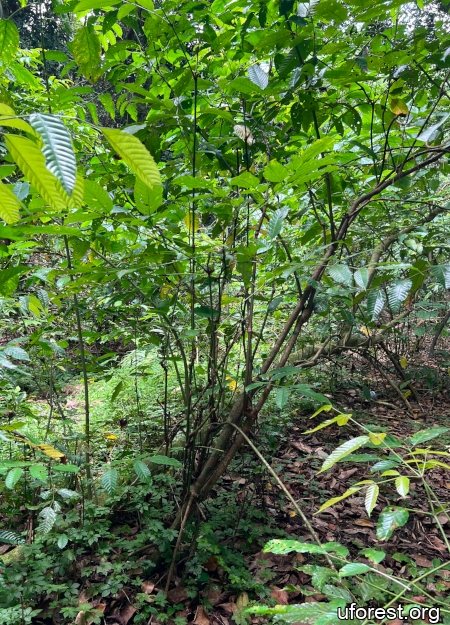
A stand in Thomson Nature Park.
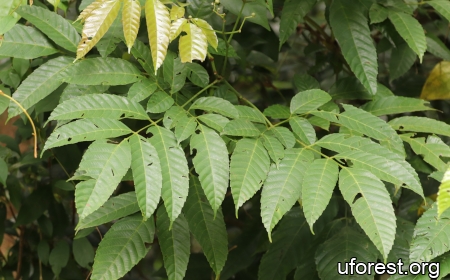
Compound leaves.

Leaflet underside.
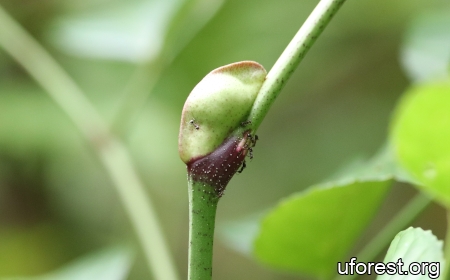
Stipule.
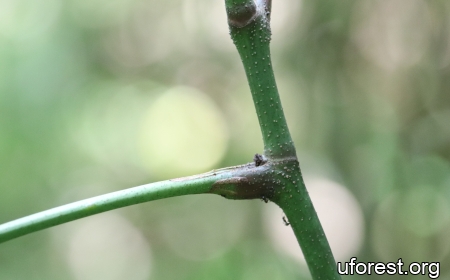
Swollen petiole end.

Infloresence.

Flower closeup with a beetle on it.
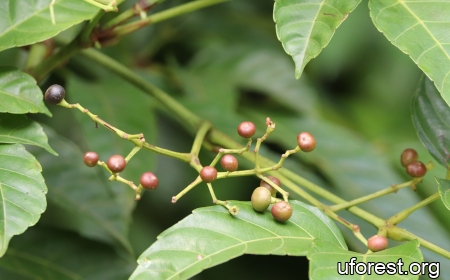
Fruits.
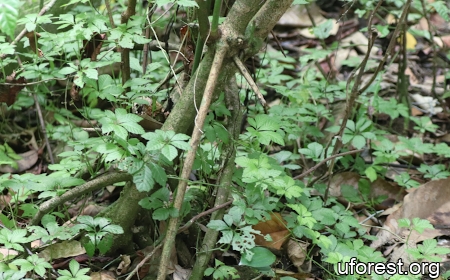
Slit roots.
References
Rei K (2019) Study finds anti-cancer properties in local plants. The Straits Times, Singapore. 11-May-2019.
Rahman MA, Emran TB, Islam S (2013) Antioxidative, antimicrobial and cytotoxic effects of the phenolics of Leea indica leaf extract. Saudi Journal of Biological Sciences, 20(3): 213-25.
Neo SY, Siew YY, Yew HC, He Y, Poh KL, Tsai YC, Ng SL, Tan WX, Chong TL, Lim CSES, Ho SSW, Singh D, Ali A, Linn YC, Tan CH, Seow SV, Koh HL (2023) Effects of Leea indica leaf extracts and its phytoconstituents on natural killer cell-mediated cytotoxicity in human ovarian cancer. BMC Complementary Medicine and Therapies, 23: 79.
Author: Siyang
Posted: 2025-08-31 / Modified: 2025-09-01